Tag: Gender and democracy
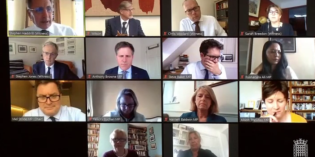
Bedding down, treading water and taking two steps forward: gender equality and the 2019–20 House of Commons select committee elections
Stephen Holden Bates, Stephen McKay and Mark Goodwin assess the gender balance on the newly elected select committees, and their chairs, and find there have been clear improvements in some areas. However, further progress cannot be assumed, and they recommend Parliament considers more reforms to improve representation within its committee system.
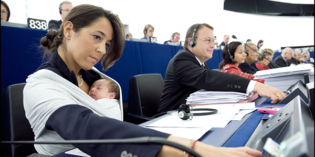
Female parliamentarians still face a motherhood penalty, but the evidence globally suggests it can be ended
It has long been assumed that female politicians face a trade-off between having a family life and a successful parliamentary career, while their male colleagues do not. Devin Joshi and Ryan Goehrung find that, while female MPs are still more likely to be unmarried and have fewer children, the gap in parental and marital status of members of parliament varies considerably internationally. They argue that by implementing social reforms to reduce gender inequality, and introducing specific reforms to create more inclusive parliaments, this gap could be closed worldwide.
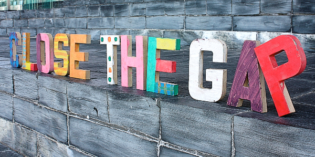
What can political parties do to involve more women in party politics?
In most political parties the majority of members are men, which has implications for achieving equal representation at all levels of politics. Aldo F. Ponce, Susan E. Scarrow and Susan Achury find that this gender gap varies considerably between parties, and that having more women MPs helps to increase women’s participation at the grassroots level.
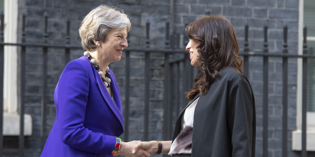
Citizens (mistakenly) perceive female-led political parties as more moderate
Does women’s leadership affect citizens’ perceptions of political parties? Diana Z. O’Brien shows that female-led parties are perceived as more moderate than male-led organisations, even though election manifestos authored by these parties are actually slightly more extreme than those by male-led parties.

The ‘hourglass’ pattern of representation: why political parties are key to electing more women to parliament
The underrepresentation of women in politics is often portrayed as a pyramid, with the main problem identified as too few at the top. However, research by Ulrik Kjær and Karina Kosiara-Pedersen, shows that, in the case of Denmark, it follows an hourglass pattern, with underrepresentation worst at the intermediary stages of party membership and candidate identification. This suggests that party strategies for encouraging women to stand are important for improving representation.
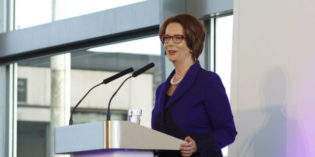
Partisanship and the gender gap: support for gender quotas in Australia
The disparity in the gender gap in parliament between the Australian Labor Party and Liberal Party has grown over time. Katrine Beauregard assesses what measures to increase the representation of women in parliament the public – and political partisans – would support.
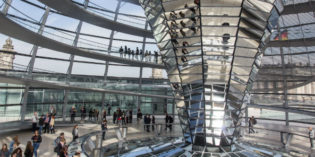
More women at the top? Why we see variation in local–national gender gaps for elected assemblies
There is considerable variation in the representation of women in elected chambers between different levels of government, but the differences are not uniform between countries. By examining the unusual case of Germany, where the representation of women is greater at higher echelons, Jessica Fortin-Rittberger, Christina Eder, Corinna Kroeber and Vanessa Marent find that the nature of the party system is crucial, in particular the strength of left-leaning and minor parties, which has implications for understanding levels of representation in other democracies.
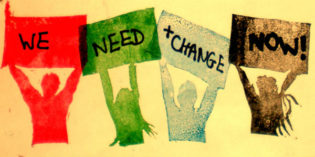
Book Review | Women & Power: A Manifesto by Mary Beard
On 6 February 1918, the Representation of the Peoples’ Act gave all men over the age of 21 and some women over the age of 30 the vote in national elections in the UK. Yet, notwithstanding this moment of considerable progress, women remain underrepresented in the seats of power. In Women and Power: A Manifesto, Mary Beard explores this continued exclusion as a consequence of women’s fraught relations with the act of public speaking. This is a timely, witty and impatient examination of the damaging ways that our societies perpetuate women’s silence and is required reading for those who see the fight for gender equality as over, finds Samantha Fu.
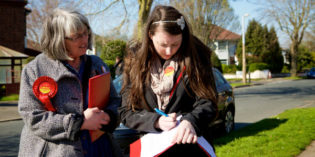
Same difference? Female (and male) members of Britain’s political parties
A recent report by the Party Membership Project run by Monica Poletti, Tim Bale and Paul Webb has shown how the membership of Britain’s main political parties is more like to be male, middle aged and middle class. The results of this survey were explored in a discussion with several leading female MPs, which highlighted common concerns about party behaviours, class and gender barriers that reinforce these disparities in participation.
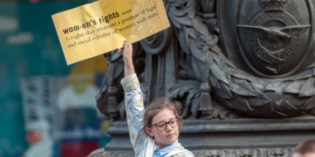
Gender and power-sharing – why a Citizens’ Assembly is needed in Northern Ireland
The prospects for Northern Ireland’s power-sharing democracy look bleak. A Citizens’ Assembly is planned for members of the public to deliberate on the disputed topics. Claire Pierson and Jennifer Thomson argue that these forms of public participation have a particular benefit for the representation of women, and has the potential to break down entrenched party political divides.


 Democratic Audit's core funding is provided by the Joseph Rowntree Charitable Trust. Additional funding is provided by the London School of Economics.
Democratic Audit's core funding is provided by the Joseph Rowntree Charitable Trust. Additional funding is provided by the London School of Economics.